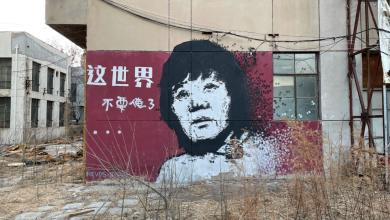How to Not Be an Oppressive Jerk: A Lesson on “Political Correctness”
“Politically correct” or “PC,” as it’s commonly abbreviated, refers to the act of using your speech in a way that does not offend another person. On the surface, this seems like a perfectly legitimate term, but it’s usually used with a more negative connotation. Instead of praising “political correctness,” the idea behind it is often met with hostility.
Rather than being used in a way which privileges the use of language as non-oppressive and all-inclusive (i.e. “I like to be politically correct when I talk so that others don’t feel ostracized by what I’m saying”), the term is most often used in one’s defense when another individual or group is offended by something that was said. In these situations, they are often more upset that the person is offended by what they said than the fact that they said it in the first place (i.e. “I’m so over people being so sensitive and offended by everything, I don’t have to be politically correct all of the time”).
With that in mind, it becomes painfully obvious that “politically correct” is a phrase which has been deeply politicized from its inception. It was never really meant to refer to anything good.
Instead, the use of it insinuates that abstaining from oppressive or marginalizing language is an act which is only appealing on the surface, meaning that people do not actually talk that way in their everyday lives so it is only ‘politically’ relevant.
Not only do I often see this term used by those who are not well-informed regarding why people are offended by a specific word or concept, but by those who are. It is frustrating in both scenarios because when a person explains why they are offended by something, it quickly turns into a situation about the individual who said the offensive thing. This effectively transforms the offender into the “victim” because they feel hindered by having to constantly check themselves and be “politically correct.”
Rather than turn the experience into an educational event whereby all parties involved can expand their view of words and concepts which require further consideration before being said, the conversation often ends without any constructive resolution.
When people use the “I shouldn’t have to be politically correct” excuse in response to someone with legitimate concern over what the person has said, all they are really saying is:
“I acknowledge that you’re offended, but you shouldn’t be, and even if you have reason to be, I still don’t care.”
I argue that we need to do away with the concept of “political correctness” once and for all.
All this term does is give a pass to people who are doing and saying things that we, as a society, should actively oppose. It shouldn’t be called being “politically correct,” but, “stop being an oppressive jerk.”
It really isn’t that hard to abstain from offending people and to acknowledge that things can be offensive even if they don’t directly affect your life. Do us all a favor and check your privilege instead of hiding behind a nonsensical excuse when someone calls you out for being offensive.





YAAAASSSSSSSS